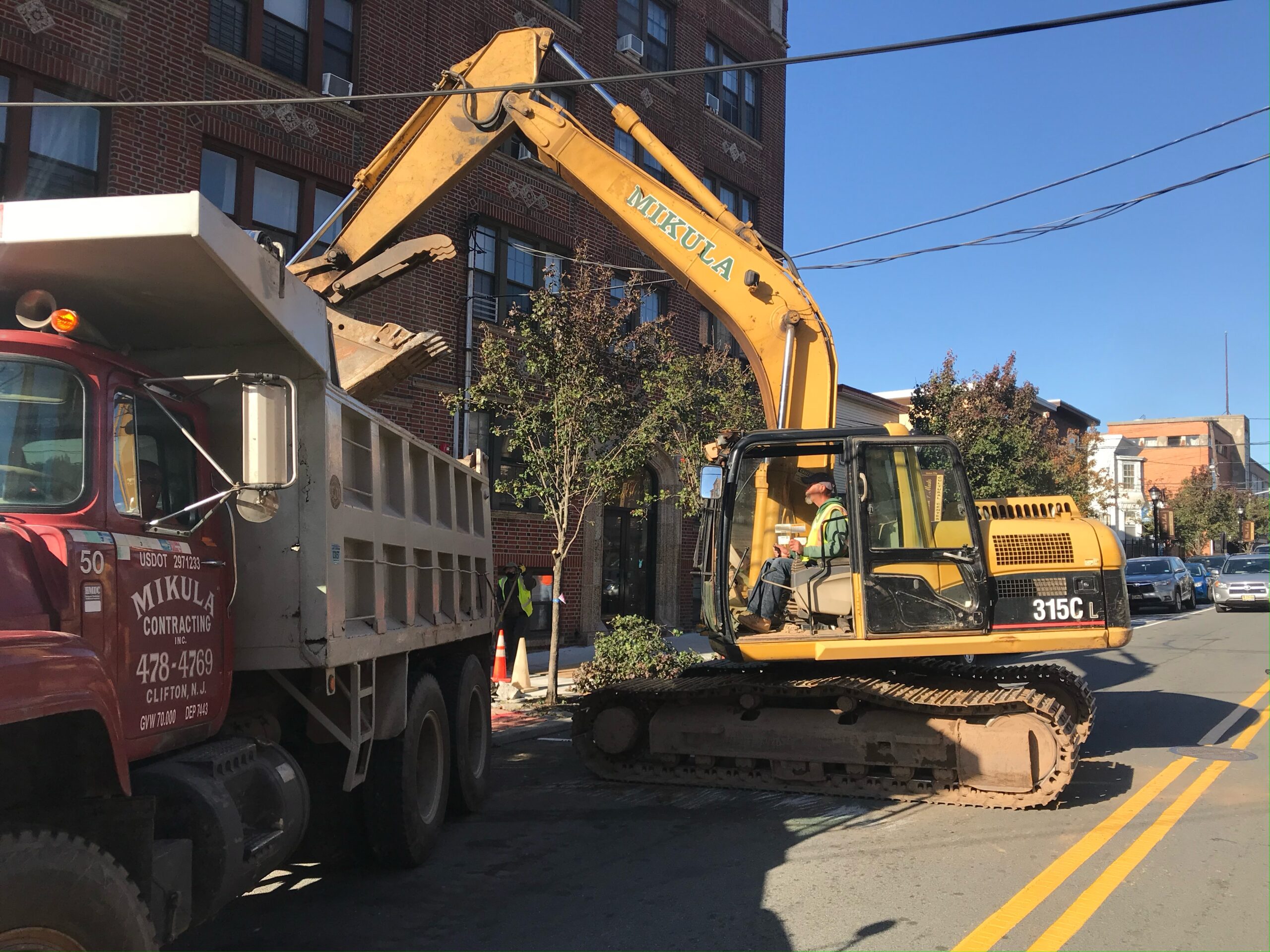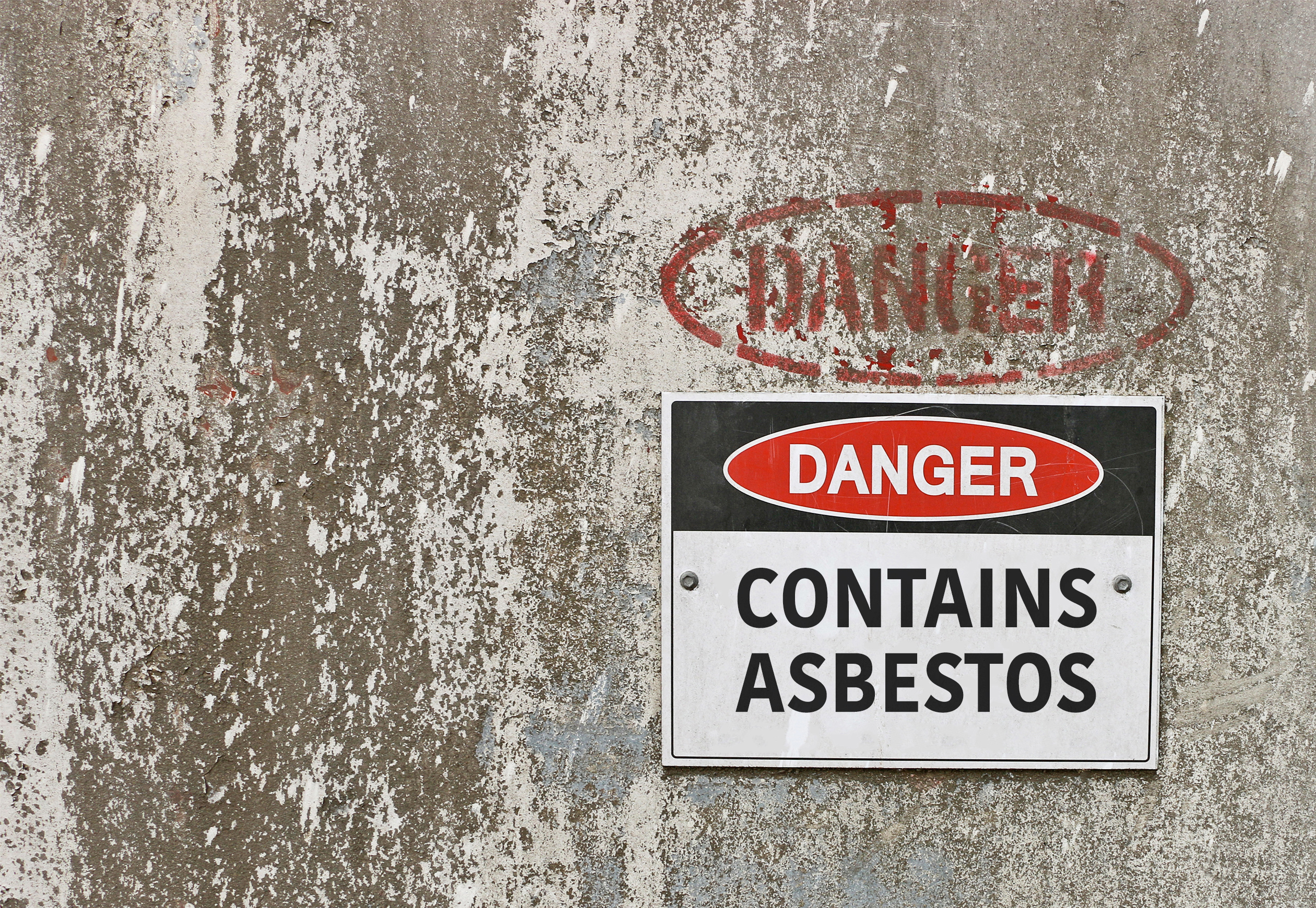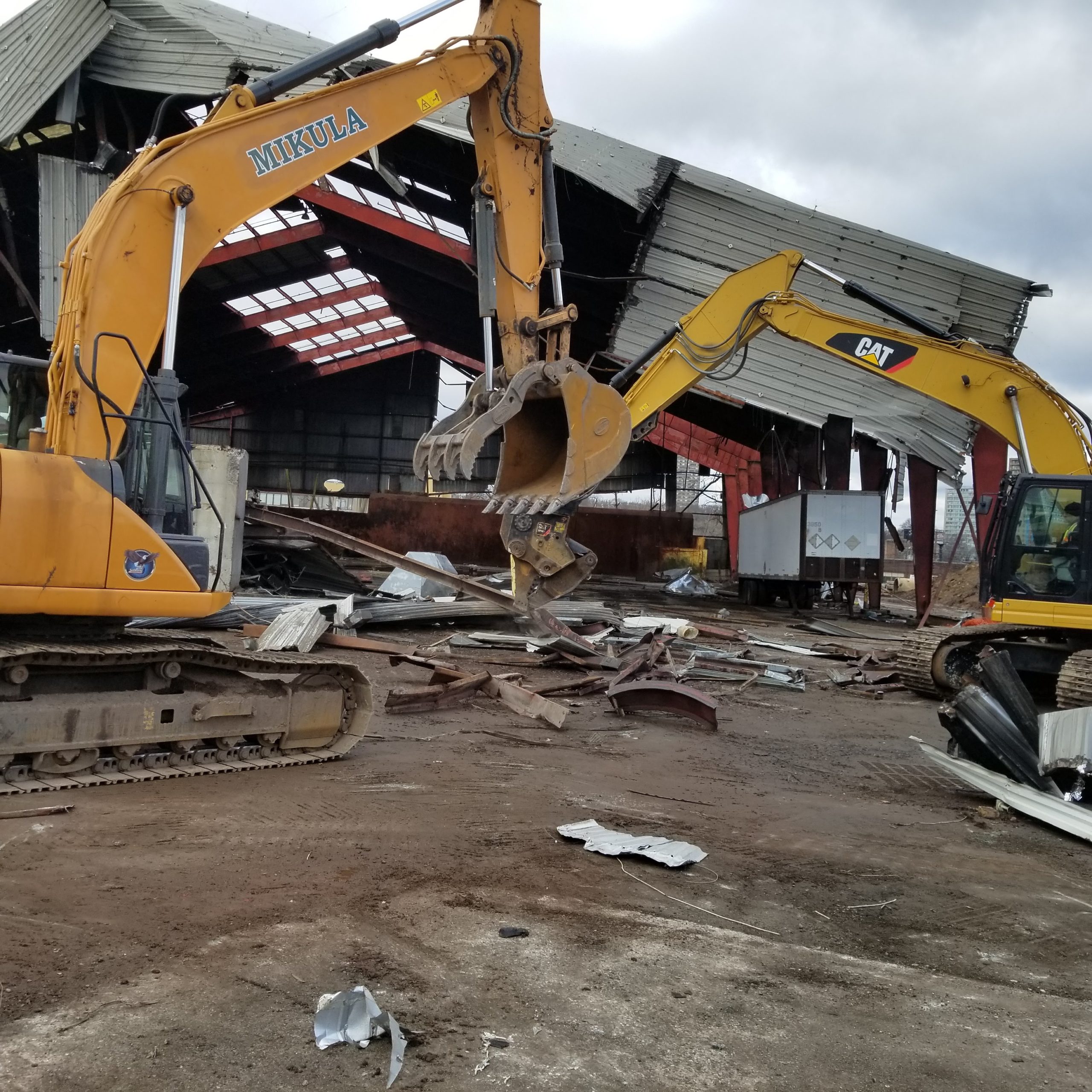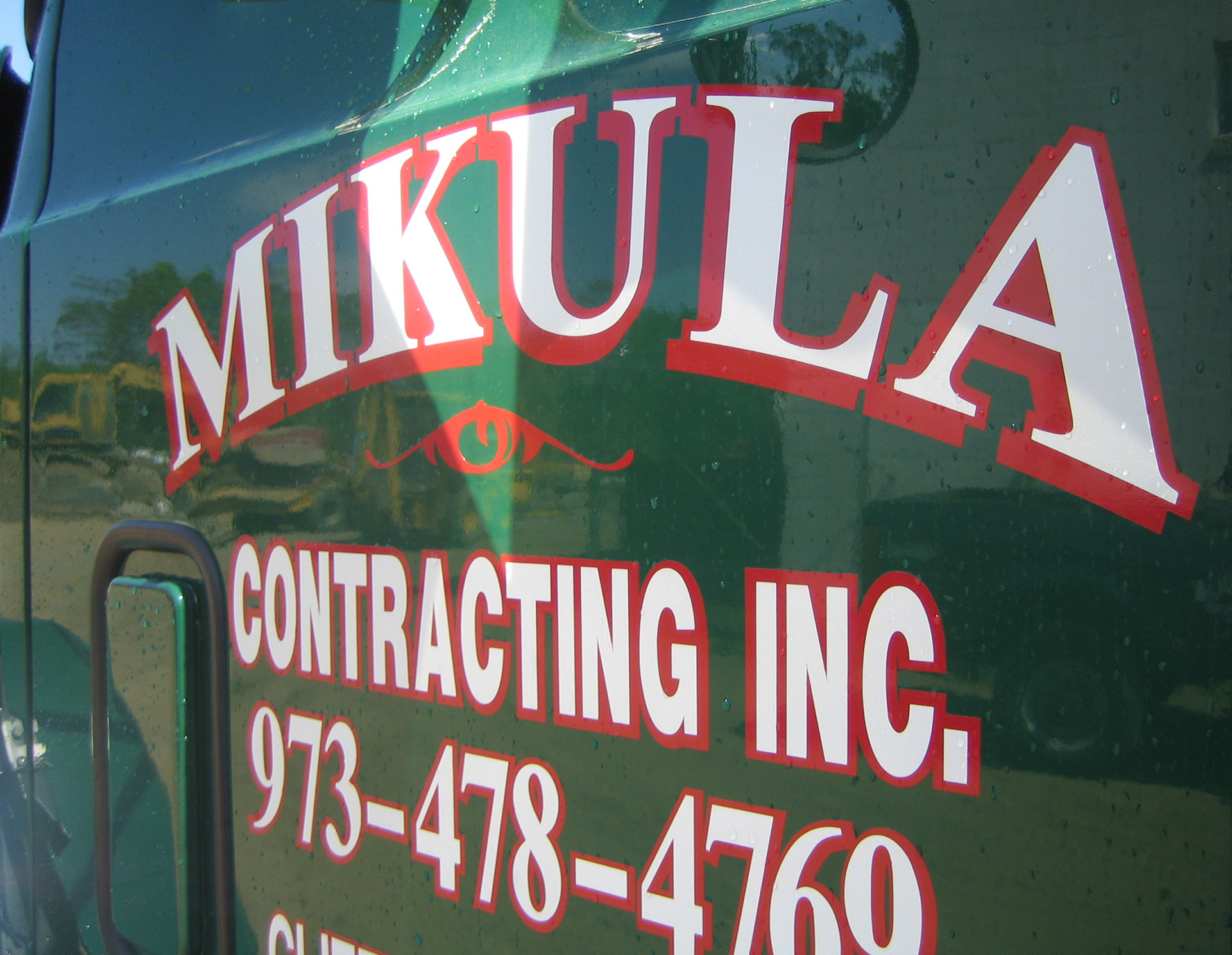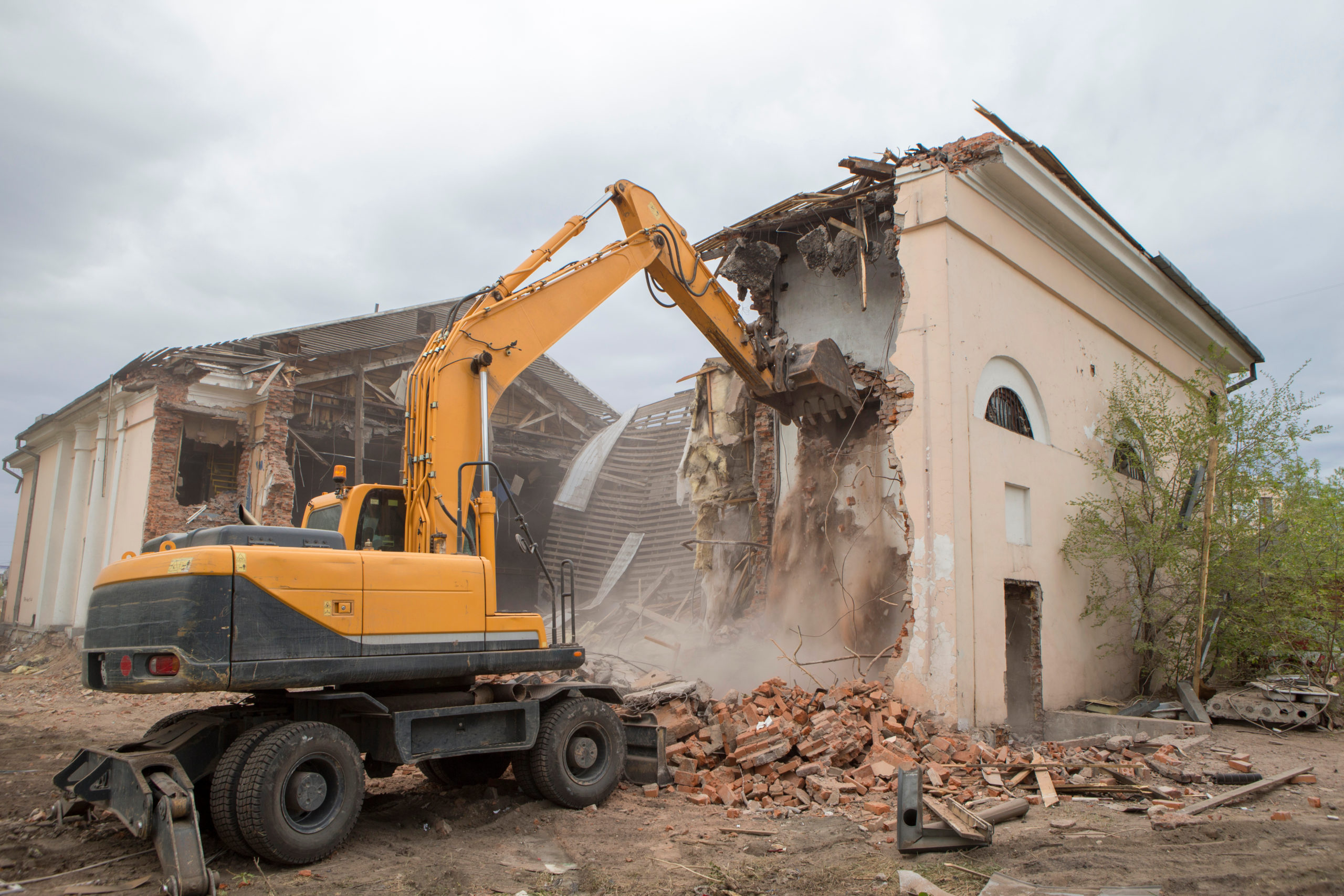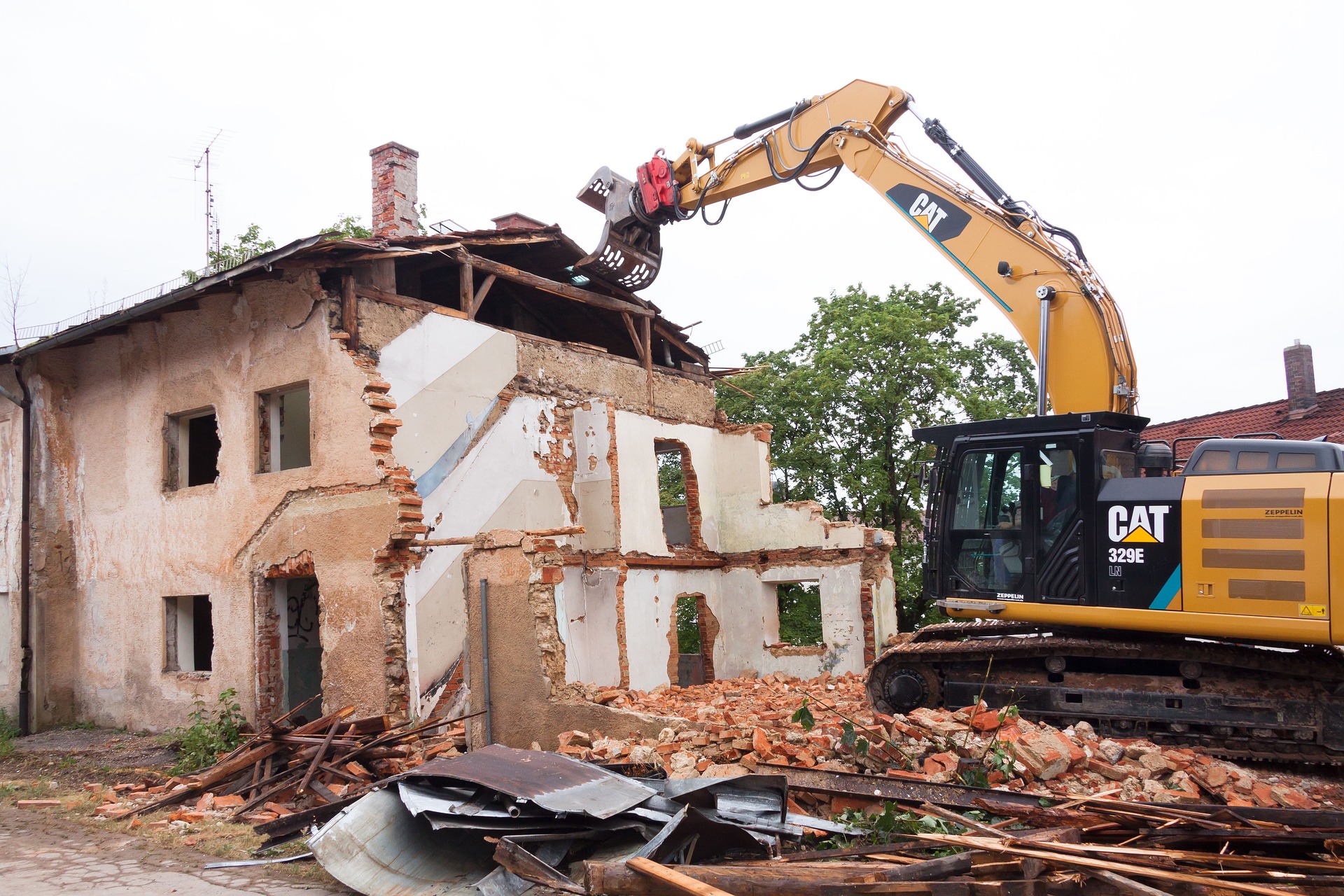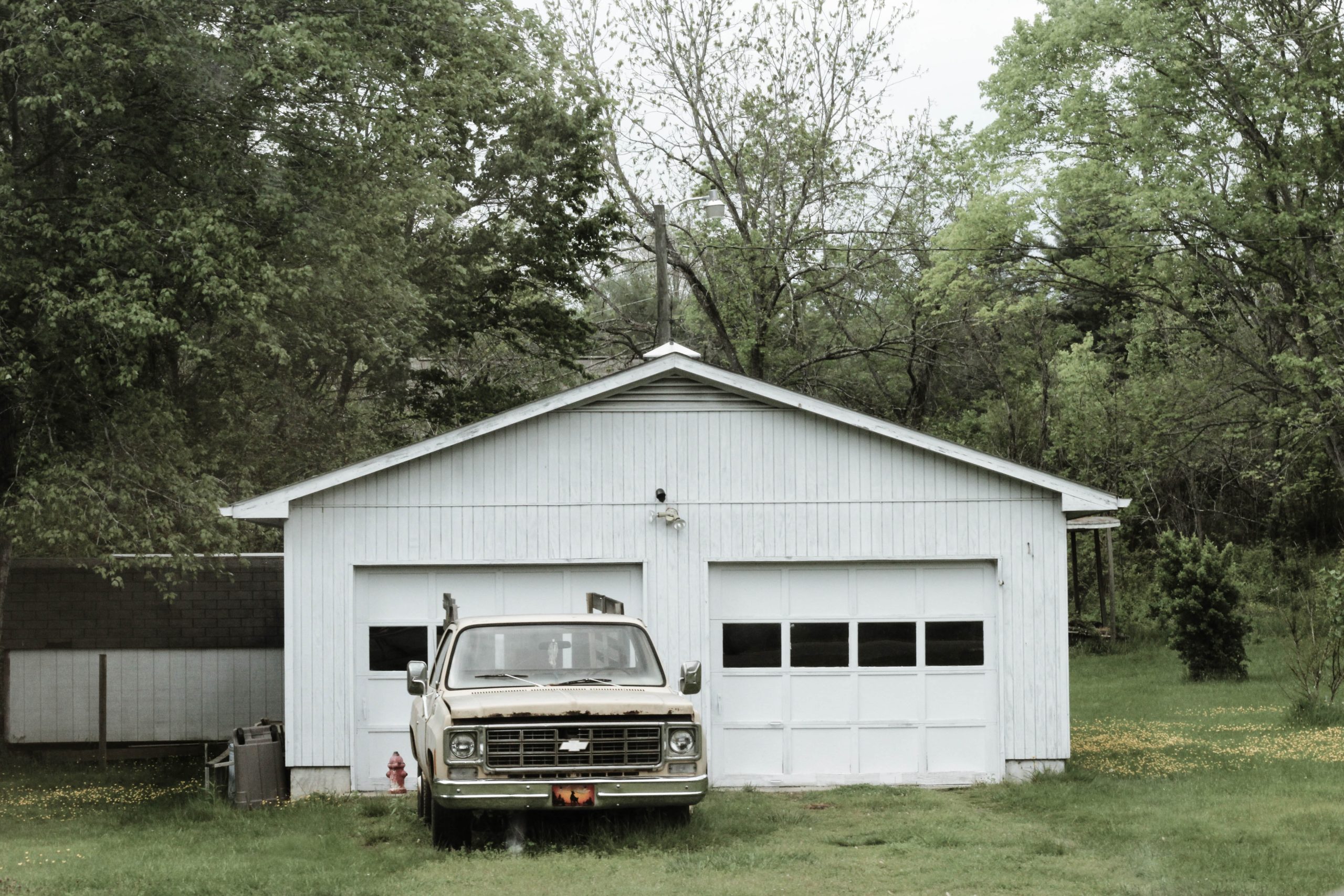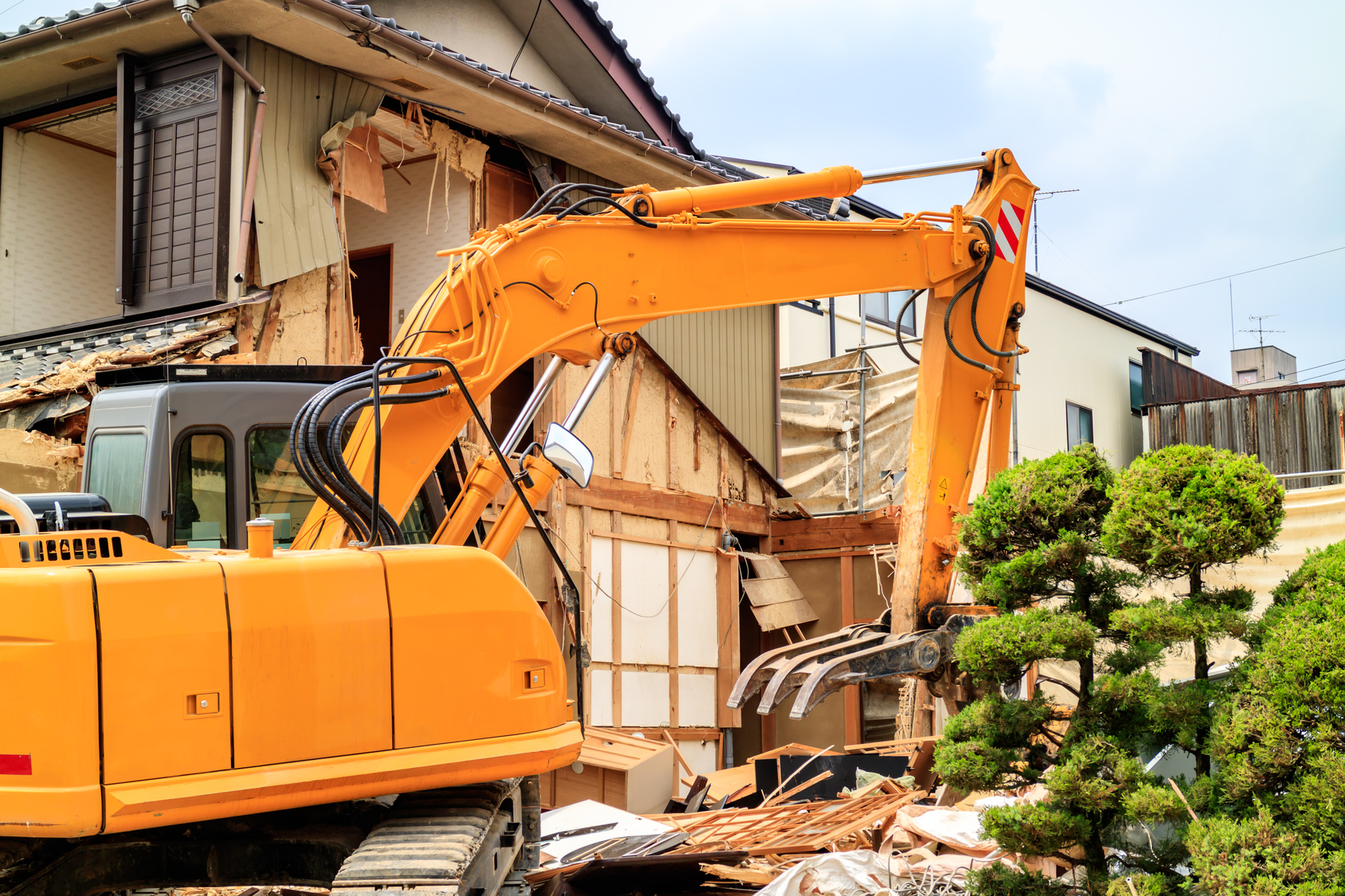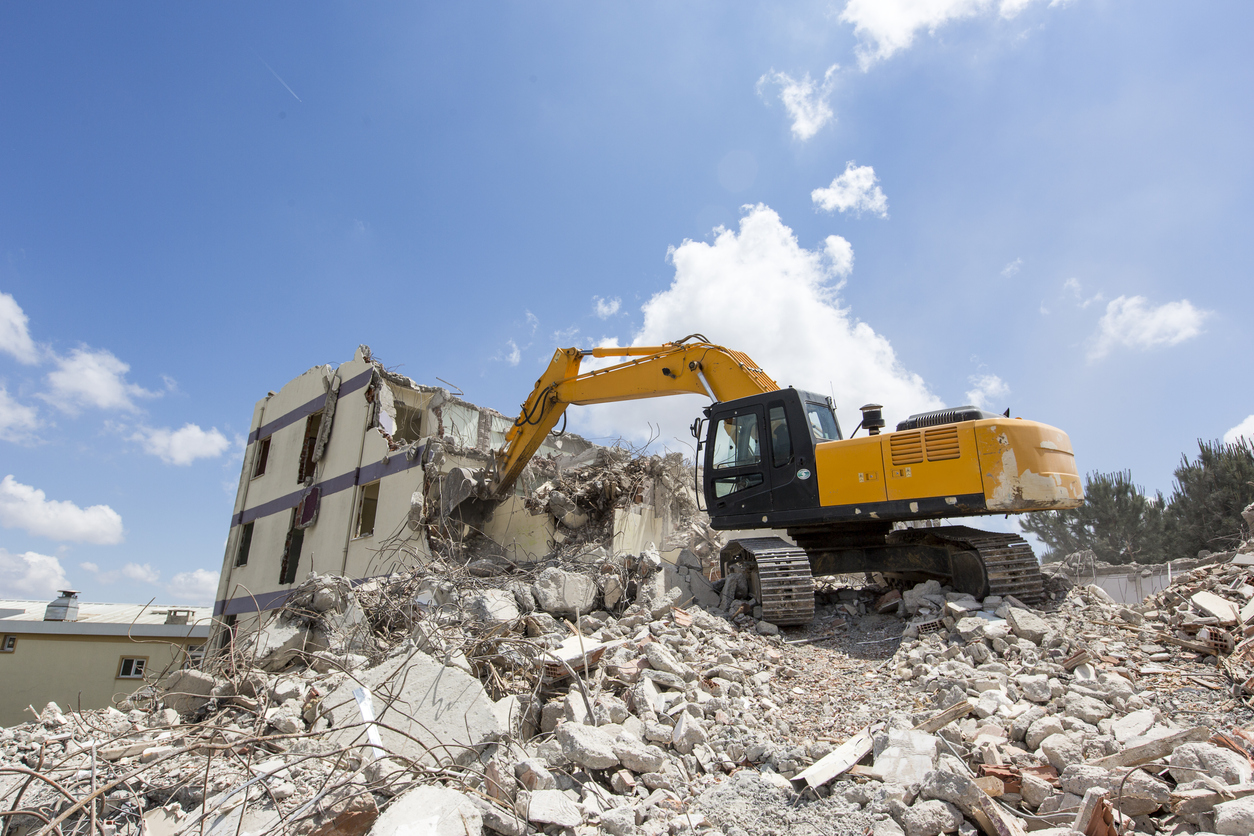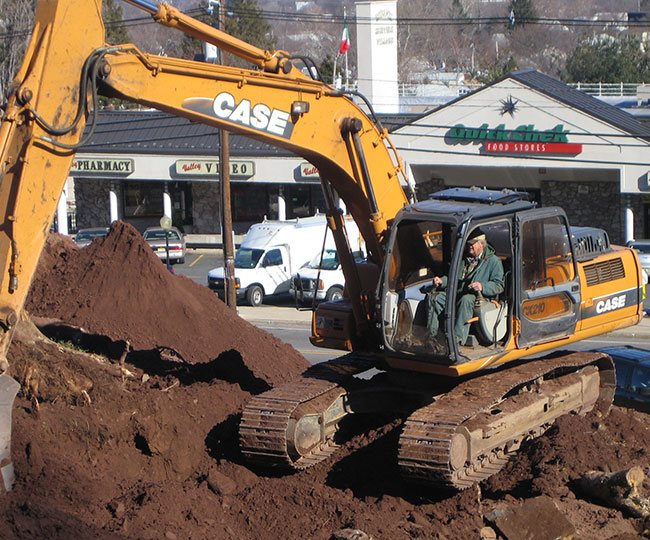How to Navigate Complicated Demolition Projects in Densely-Populated Areas
Demolition projects in busy cities or neighborhoods come with their own unique set of challenges. The presence of neighboring structures, heavy traffic, pedestrian safety concerns, and regulatory requirements require a careful and strategic approach to ensure a successful demolition process.
The good news is that you can safely conduct a demolition with careful planning and consideration. If you require professional demolition services, Mikula Contracting is here to assist you with our expertise and experience in building demolition project planning.
Understanding the Unique Challenges of Demolition in Dense Areas
When you are ready to embark on a demolition project with nearby buildings and community residents, you need to have a plan. Consider damage to surrounding property, passers-by, and even noise advisories.
Additionally, the presence of hazardous materials, such as asbestos, in older structures necessitates proper identification, handling, and disposal to ensure the safety of workers and the community. How can you conduct building demolition project planning to achieve a successful demolition? Consult the experts.
Navigating Regulatory Requirements and Permitting Processes
Get very familiar with the regulations and permits required for demolition in the area. Local authorities may have specific guidelines and regulations in place to protect public safety and minimize disruption to the surrounding community.
What rules do you have to follow? What permits do you have to obtain? Your building demolition project planning should include waiting periods for permits so that your project does not have to unexpectedly come to a halt.
It is crucial to work closely with the relevant agencies and obtain the necessary permits and approvals before commencing any demolition activities. Your demolition contractor will need to obtain the proper permits, have the right insurance, and follow all protocols the local municipality has established. This is why it's critical to choose an experienced New Jersey demolition contractor such as Mikula Contracting who knows what is required for a project to run smoothly.
Community Outreach and Communication During the Demolition Project
Maintaining open lines of communication with the community is essential during a demolition project in a densely-populated area. Reach out to the community to present your plan, offer a pathway for feedback, and give them ample time to plan for closed sidewalks or even streets.
Proactive community outreach helps to establish a positive working relationship with the local community. Continual updates about your building demolition project planning through newsletters, public meetings, and city websites can solidify respectful communication and help the community feel comfortable with your demolition plans.
Pushback from the community could delay your project, so proactive communication is always the best idea especially since your contractor must follow the guidelines put forth by the municipality.
Best Practices for Noise and Dust Control in Dense Urban Areas
The biggest complaints from the community during a demolition project are regarding noise and dust. Have you ever been at home with nearby construction and can hardly hear yourself speak? Empathize with nearby residents and businesses by taking extra courtesies.
You can operate heavy equipment during specific times of the day so that you do not disrupt sleep or evening time at home. These aspects of building demolition project planning will help minimize disturbances to nearby residents and businesses.
In addition, keep dust at bay with a dust-control plan, such as wetting down debris and using protective covers. This ensures that dust levels are kept to a minimum, ensuring cleaner air and less disruption to surrounding community members.
Managing Traffic and Pedestrian Safety During Demolition Projects in Busy Areas
Nearby roads and sidewalks may be affected by your demolition project. What can you do to notify the city about possible disruptions to their regular routes? Temporary road closures, traffic diversions, and clearly marked pedestrian pathways are essential to maintain the safety of the public and construction personnel.
Post signs and warnings for upcoming closures so that people have time to plan around the detours. Additionally, many municipalities require demolition contractors to have a traffic cop on site when road closures are required to complete the job.
Lastly, pedestrian safety is also paramount. At Mikula Contracting, we will block off sidewalks and areas using a safety fence which is a common way we maintain safety during the demolition projects that we complete.
Mikula Contracting: Your Trusted Partner in Building Demolition Project Planning
Mikula Contracting is your trusted partner for demolition projects in densely-populated areas. We specialize in building demolition project planning, ensuring a seamless and safe process from start to finish.
Our team is ready to help you with your demolition project while making sure the safety and comfort of the surrounding businesses and residents are top priorities. Calm the nerves of local authorities and residents by choosing to work with Mikula Contracting for building demolition project planning.
The Importance of Proper Asbestos Removal in New Jersey Demolition Projects
We’ve all heard about asbestos, most often with a fearful worry about coming in contact with it. Have you ever wondered if the hype and worry are really valid? Is it just an “old wives’ tale” that you should avoid asbestos materials at all costs?
Today we are going to take a closer look at asbestos, what it is, where it can be found, and how you know if it’s present. Asbestos is especially important to know about if you’re getting ready to undergo the demolition of your New Jersey home or commercial building. Knowledge is power, and in this case, safety.
What Is Asbestos?
Asbestos is a building material that was often used in building homes and commercial properties across the country for several years. Its use began in the early 1900s but became more popular in the 40s. Once it was found to be highly toxic, its use was halted. The discontinuation of asbestos use didn’t happen until the 1970s and even up to 1980. That’s 30-40 years of substantial asbestos use. You can only imagine how many buildings and homes around the world contain asbestos materials!
So, what exactly is asbestos made of? Asbestos is a group of naturally occurring fibrous minerals mined and milled from rock. This material can be found in most countries across the world, but most of it comes from Canada, Australia, South Africa, and the former Soviet Union. It’s a strong substance that doesn’t corrode and is heat and chemical resistant, hence the appeal to use it in various materials. In fact, according to the New Jersey Department of Health, it has been estimated that 3,000 different types of commercial products contain asbestos.
Some asbestos-containing material (ACM) can be found in households as well, including:
- Textured ceilings
- Roofing materials
- Siding material
- Cement panels
- Attic insulation
- Vinyl floor tiles
- Certain types of linoleum
- HVAC duct insulation
- Plaster
- Hot water pipe insulation
- Boiler lagging
- Various fire protection materials
Regulations for Demolition Involving Asbestos
The New Jersey demolition regulations that involve asbestos change depend on what is removed or demolished. Your best and safest route should always be hiring an asbestos abatement professional to handle the removal and disposal of all asbestos materials. Demolition and renovations tend to disturb materials that contain asbestos, even when they’re handled carefully. Safety is the number one priority in all asbestos removal cases.
Once asbestos materials are removed, they can be taken to a landfill that is qualified to take asbestos waste. There are specific protocols for disposing of asbestos waste, and your abatement professional will know the requirements for your region. These protocols often include wetting the materials and placing them in plastic before they can be transported and disposed of. At the landfill, these packaged materials will then be buried.
It's important to know that if you decide to remove asbestos on your own and then illegally dump it, you could face some hefty fines and even jail time. Safety for all involved (and those not directly involved) is critical in the handling of asbestos!
Did you know that, in some cases, asbestos can even be recycled at specific locations? During recycling, the high heat destroys the asbestos fibers, making them non-hazardous. There is continuous research going on as to the best process for recycling asbestos. Still, it is important to help lower the costs of disposal as well as the dangers associated with improper disposal.
If you believe improper care has been taken with asbestos disposal, call the EPA at 1-800-368-5888 or The Occupational Safety and Health Administration (OSHA) at 1-800-321-6742.
The National Emission Standards for Hazardous Air Pollutants (NESHAP)
The National Emission Standards for Hazardous Air Pollutants (NESHAP) specify work practices to be followed during asbestos removal during demolitions and renovations. In fact, part of these standards and regulations include the requirement of building owners to notify the appropriate state agency before even beginning demolition and renovations of buildings that could contain a certain threshold amount of asbestos.
NESHAP also regulates and enforces standards for hazardous air pollutants. Manufacturing and fabricating operations cannot emit visible emissions into the outside air. If they do, they must follow certain air cleaning requirements. This group also regulates the removal of waste that contains asbestos.
The Asbestos Hazard Emergency Response Act (AHERA)’s Model Accreditation Plan (MAP)
The Asbestos Hazard Emergency Response Act (AHERA) requires any workers that will be working within a building that contains asbestos materials to be accredited under a training program at least as stringent as the EPA Model Accreditation Plan (MAP). Once they are familiar with the dangers of asbestos, they are sure to follow strict safety guidelines.
The United States Environmental Protection Agency works hard to educate building owners about making and maintaining a program to manage asbestos-containing materials in their buildings. This plan includes training, cleaning, and other work practices to ensure safety. Please note that school buildings are different from other public buildings and have their own regulations and requirements for managing asbestos under the Asbestos Hazard Emergency Response Act (AHERA).
What Happens When Asbestos Is Mishandled?
If potential asbestos risks are ignored, and then materials containing asbestos are mishandled, all those entering the building can be exposed to serious health problems. Asbestos fibers are incredibly hazardous to your health and have been linked to cancers and other potentially fatal diseases.
You may think that it will only take a couple of hours to remove a damaged area of old textured ceiling material. The truth is if the material is damaged, asbestos fibers are easily made airborne, exposing you to very dangerous toxins. Even a couple of hours of exposure can destroy your health for the rest of your life. Asbestos material has been labeled the “silent killer” for good reason. It has been rated the number one cause of work-related deaths not just across the country but throughout the world. Why take the risk with material this unsafe? It’s not worth cutting corners to save a little time or money during your New Jersey demolition project. Your health and the health of your loved ones are too important to risk.
How to Know If Your Demolition Project Requires Asbestos Removal
Depending on the situation, the law may require you to remove asbestos found during your demolition preparations. If the building you’re demolishing is older, you will most likely need an inspection before proceeding. If the material is found, you must have those areas cleaned or removed by a professional before moving forward. A good rule of thumb – always have areas in question tested before disturbing them during demolition or even simple renovations.
Mikula Contracting Cares About the Safety of Your Project
Handling the abatement of asbestos is a serious and important factor in your contracting project. While Mikula Contracting does not remove asbestos, we happily work with your asbestos specialists and handle your demolition and excavation needs post-abatement. Mikula Contracting follows the proper guidelines and regulations for the work we complete and will coordinate with your asbestos specialist to schedule our work accordingly once they’ve completed their work removing any asbestos from your New Jersey-based demolition project. No amount of exposure is safe, even just for a few minutes. Don’t take any chances with your health or the health of those you love. Asbestos is extremely dangerous and should be left to professionals.
Contact Mikula Contracting for any questions regarding post-abatement excavation and demolition. We value the safety of our clients, job sites, and employees, and ensure the work we complete is done according to regulations. Reach out today.
Navigating the Process of Demolition in New Jersey
When it comes to the construction process, navigating it from beginning to end in a safe and organized way is key. Demolition is where it all begins. You must make sure it’s done right, or you’ll pay for it later.
Do you know what to expect during these first steps of your construction project? Do you know the regulations and permits that are required? Whether you want to do it all on your own or know that you’ll probably need a contractor to handle things, you should be aware of the entire process (including the excavation process in New Jersey), the potential problems, associated costs, and more. Let’s make sure you know all the details before you get started.
Understanding New Jersey's Demolition Regulations and Permits
Acquiring the necessary permits for your demolition project or excavation work is vital to the construction and building process. Abiding by the regulations set by the state, county, and city is also a must. But keeping track of all these regulations and required permits can seem impossible for the average person. This is one of the examples of why you shouldn’t go it alone.
Keeping track of all the permits and regulations for each part of the demolition and excavation process is one reason hiring a contractor will pay off quickly. The contractors at Mikula Contracting will take care of it all, alleviating all of your worries.
Hiring a Demolition Contractor: Tips and Considerations
When you’re choosing a demolition contractor, be sure to consider the skills and experience of your potential hire. Here are a few other considerations and tips for choosing the right contractor for your project.
- Check out your potential contractor’s reputation. Ask around for others that have used them in the past to find out more details. You can also look up the company you’re interested in hiring to read the reviews that have been posted for them.
- Ask for references and examine the work done for yourself to ensure it’s top quality.
- Ask about the tools and equipment that will be used for your project. Using the proper equipment is key to completing the job correctly.
- Find out what safety procedures the company abides by.
- Be sure your contractor is licensed and insured – no matter what!
Safety Precautions During the Demolition Process
A demolition crew must take appropriate safety precautions while they work. If not, accidents can happen quickly.
Some of the most important safety precautions your contractor and demolition crew can take include:
- Wearing personal protection equipment, including gloves, steel-toe boots, reflective vests, and more
- Ensuring that all workers are properly trained and qualified to do their job before stepping foot on the job site
- Shutting off utilities before working
- Staying out of unsafe areas that present structural hazards
- Maintaining a clean job site to protect against injuries
- ALWAYS watching and preparing for asbestos. Working with professionals that will take the right steps to handle the situation per the necessary guidelines and requirements.
After demolition and clean-up, excavation can begin. Excavation isn’t just the process of moving dirt from one place to another, especially for large structures. There is much more involved, including:
- Setting corner benchmarks
- Surveying for ground and top levels
- Excavation
- Backfilling to cut off level
- Construction of dewatering wells and interconnecting trenches
- Marking for the building/home
- Construct bunds to improve stability or support pipelines on the excavation site
Practice due diligence in finding an excavation contractor to complete your project safely and on time.
Navigating Environmental Concerns and Demolition Waste Disposal
Construction and demolition projects naturally bring about a lot of waste. It doesn’t matter whether you’re building a new building or home or tearing down old ones – large amounts of waste are inevitable. This is why taking care of and disposing of that waste correctly is important. Before hiring your contractor, ask how and when building material waste will be removed. You don’t want to be caught doing it on your own or find out that there isn’t already a plan in place.
Some construction and demolition waste may consist of:
- Concrete
- Wood
- Metal
- Glass
- Plastic
- Asphalt
- Drywall
- Brick
- Plumbing materials – pipes, sinks, toilets
- Landscaping material – trees, rock, dirt, etc.
So, what can you do to reduce the amount of waste that ends up in a landfill? Doing your part to reduce waste can include reusing materials, recycling products, and going out of your way to rebuy these types of materials when you can– taking these small steps can make a difference. It all adds up! Talk with your contractor about what they do to help reduce waste at the job site.
Dealing with Unexpected Issues During the Demolition Process
Mikula Contracting is the company you need to complete your demolition and excavation process in New Jersey the right way. You don’t want to be the one dealing with demolition and excavation site issues on your own. These projects require a lot of know-how, experience, and attention to detail.
A large excavation and demolition project requires a contractor that is efficient, practices safety always, possesses the needed tools and equipment, has a plan for responsible waste management, and delivers quality work. Mikula Contracting checks all the boxes and more. Call our team today to learn more about how we can help in your next project.
The Advantages of Working with a Family-Owned Business as Your Demolition Contractor
When the time comes to choose a demolition contractor, you want to be sure you do your research. The last thing you need is to hire a team that does not show up as planned and delays the project. Or worse, a team that does not practice safety on the job and threatens the safety of your employees or family.
When considering how to choose a demolition contractor, think of a family-owned business like Mikula Contracting. We have years of experience in the industry and know how to conduct professional demolition safely, efficiently, and affordably.
Personalized Service and Care
Each professional demolition contractor has its own set of standards. Our Mikula Contracting team builds personal relationships with each client on our demolition projects. You can be as involved in the project as you want. Discuss your vision for the demolition project during the planning stages. Visit the site when you see fit, knowing we will welcome you each time.
When considering hiring a demolition contractor, choose a company that invites you in as part of the family, sharing past projects and discussing your goals. We are always available to contract ongoing projects with our clients. Often, once people experience our integrity and hard work, they come back to hire us for more projects.
High Level of Commitment
Think of all the traits you want to consider when choosing the right demolition company for residential or commercial demolitions. At the top of the list is a high level of commitment to your project, no matter how big or small.
You should never feel like you are a low priority for a company. Pay attention to how quickly the company responds to your inquiries. Will they see your project through to the end with unwavering commitment? If the answer is yes, it’s likely that they’re the right demolition contractor.
From the President of Mikula Contracting
"When working with a family-owned business like Mikula, one of the first things you’ll notice is the commitment level of the team members. Our company has minimal turnover due to our family-based culture which contributes to the overall success of our company. It is also very common to see the outstanding work ethic in each one of our family business employees. As a result, high-quality service comes from our employees taking pride in their work as they tend to treat each project as if it is their own." - Dennis Mikula, Jr., President
You’re More Than Just a Project Number
When working with a family-owned business, clients are often treated as if they are part of the family and not just a number in the system. This is important as you tend to work with the same team members on multiple projects which have many moving parts and it's much more efficient to work with the same people over an extended period of time.
At Mikula Contracting, we learn about your past, present, and future needs and refer to your project using your name and address. To us, you are never just a project number. Come and work with our team as the right choice of a demolition contractor you can trust.
High-Quality Service and Work
How do you know you will receive high-quality demolition work at affordable pricing? Learning how to choose a demolition contractor does not include choosing the cheapest services. You may run into a company that lies about experience and safety procedures just to get the contract. They are likely to have the lowest prices.
Use your resources as you research customer reviews, talk to other homeowners or businesses for referrals, and interview the contractors. Be sure they can show you a comprehensive portfolio and answer tough questions.
When the team starts the job, if they stick to the plan and notify you immediately of any roadblocks, you will know if you have chosen the right demolition contractor. High-quality service can be affordable if you conduct your due diligence in researching the company’s legitimacy.
Greater Stability
Other questions you may ask when conducting how to choose a demolition contractor are:
- Do they have insurance?
- Will they clean up the debris?
- Do they recycle or reuse?
- What equipment do they use and is it in good condition?
- What is their safety record?
Mikula Contracting will have reliable answers to these questions and more. When you choose a family-owned company with experience like ours, you can rely on our expertise when you need it the most. For example, a demolition project may fall apart with the discovery of asbestos. Mikula Contracting has the resources and plan of action to safely remove asbestos and continue with the project.
In addition, we always leave a project looking better than the way we found it. You will never have to worry about a demolition contractor that abandons the project before the cleanup is complete when you work with us. You are invited to the job site to inspect our equipment and watch our procedures in action.
Discover stability in your trusted demolition contractor when you hire Mikula Contracting for the job. You will not regret getting to know our contractors and expanding on the projects we can complete together.
Mikula Contracting Is Here to Help
You never have to worry about how to choose a demolition contractor once you find Mikula Contracting. Our team will always take care of your demolition needs without a worry on your mind. Contact our office for a consultation regarding your specific project.
Five Common Residential Demolition Myths
There are many misconceptions and myths concerning residential demolition. Many people think demolition is just destroying the old, even historic homes and buildings, for selfish reasons and only to bring about new, modern construction. This isn’t quite the case. Let’s debunk some of the outlandish myths associated with residential demolition so you can understand more fully what is involved in such projects.
Myth #1 - Demolition Is Not Environmentally Friendly
Demolition results in harm to the environment no matter what you do to avoid it, right? This myth is not true. Professional demolition companies use methods to aid in removing and properly disposing of harmful substances to protect natural resources from any harm during a demo. There is quite a bit of thought and effort that goes into protecting the environment.
Not only do companies like Mikula Contracting work to protect surrounding people and places, but they also strive to be environmentally friendly by recycling any materials possible and working with clients to meet their contracting needs.
Myth #2 - Demolition Is Chaotic and Dangerous
Demolition is often viewed as buildings being blown up and things going wrong. It’s what gets the “hits” and “clicks” on the internet, isn’t it? In reality, the demolition industry is much more complex, and demo work is done carefully, with a great deal of preparation.
There are risks involved with demolition, but everything possible is done to keep our crew and others safe. Inspections are done, hazards are removed, and every part of the job is examined before the demo starts. In addition, Mikula Contracting strives to constantly enhance our skills and continue to improve our technique as we keep up with new and changing industry standards, keeping all involved safer than ever.
Myth #3 - Demolition Is Expensive
You may have heard that demolition is expensive and that you should do everything you can to avoid it. Fortunately, this isn’t necessarily the case. Saying demolition projects are just “too expensive” is a very sweeping statement, and the price will depend on the job. Really, when compared to the rest of the construction that will take place at the demolition site, the demolition itself is often a relatively small part of the expense.
Myth #4 - Demolition Destroys Historic Buildings and Homes
The truth is historic buildings and homes are rarely torn down and demolished, so this myth can be easily debunked just by looking at the numbers. Demolition services are sometimes even used to help preserve historic buildings as safety updates are made. In fact, if a historic building is demolished it is typically done for safety reasons.
Historic buildings, homes, and structures can be moved or repurposed which is why it’s important to work with an experienced demolition contractor. In addition, professional demo crews have experience narrowing down only specific parts of a building that need demolition while still ensuring the structural integrity and strength of the remainder of the building, increasing the longevity of the historic structure.
Myth #5 - All Demolition Companies Are the Same
How hard can it be to knock down walls and tear down old construction? Well, it’s much more complex than you may originally believe. Residential demolition is not something that just anyone can do. It can be dangerous for those performing the demo as well as those in the near vicinity and possibly for those that will live there in the future if the demolition is not done right. Beyond this, “demolition” as a concept applies to a much broader range of skills and equipment than a layperson might expect. For example, a contractor who does demolition on commercial buildings may not work on residential homes, or vice versa. Similarly, demolishing exterior walls or full structures is different from taking down interior walls, and your contractor may not be equipped to handle one or the other. Be sure that your contractor understands your needs so they can ensure that they have the people, skills, and equipment to manage your project.
There are technical and safety precautions that must be taken, as well as environmental concerns that must be addressed. Not all demolition contractors are the same. Choosing the right demolition experts to do the job is crucial.
When picking from a slew of demolition companies, make sure to:
- Gather several quotes before making a choice. Make sure you’re comparing the small details as well as the bigger ones.
- Establish clear communication. Make sure you are clear with your contractor about how and when you would like to communicate during the demolition process, and that they agree it’s something they can abide by. Also, be sure that you are clear on what you expect and want on the project itself, including specifics.
- Plan out an expected timetable. Agreeing on an acceptable timetable for your demolition work to be completed in the beginning will establish expectations. If your contractor is unsure about a timeline and doesn’t want to confirm any deadline, you may consider moving on to a different company.
- Look at previous work and experience.
- Check out licenses and insurance and confirm they are current.
- Be sure your contractor will take care of demo clean-up and disposal so that you’re not left to do the dirty work unexpectedly.
The Demolition Experts at Mikula Contracting Are Here for Your Residential Demolition Needs
Mikula Contracting is the demolition crew that takes the time needed to complete your residential demolition with the utmost care. Our goal is to relieve the stress surrounding your home demo because of the complete trust and confidence you have in our demolition process.
Don’t just take our word for the great work we do. We have completed many demolition projects of different sizes and encourage our clients and potential clients to see our work for themselves.
Ready to get started on your residential demolition? Mikula Contracting is ready to get started! Give us a call today.
Factors to Consider During Your Next Demolition Project
Many factors can lead you toward the decision to seek demolition services. For example, a building could be deemed corrupt from a faulty foundation, hazardous materials, or infestation of animals.
While some building materials are worth salvaging, it may be time to take down the whole building. Take note that building demolition is not on the standard list of DIY projects. Instead, a demolition contractor in New Jersey can take on your project and walk you through their process to ensure it’s done right. Below we outline some of the main factors to consider during your next demolition project.
Planning Permissions and Permits
The first thing that needs to be done for many construction projects is obtaining the proper permits to get the job done. Meet with your demolition contractor to find out if you have permission to level the building, and what permits are required.
While you wait for the permit approval, you can start to plan. For example, which demolition methods make sense for your building demolition?
- Excavator: The use of machinery pulls apart the building until it collapses.
- Wrecking Ball: A giant ball is used to crash into the building until you’re left with a pile of rubble.
- Deconstruction: This careful demolition includes breaking down each piece and saving the flooring, appliances, doors, and windows for reuse. At Mikula Contracting, we can work with other companies to demolish the structure once you’ve deconstructed it in order to save the things you wanted.
Meet with a New Jersey demolition contractor, such as Mikula Contracting, to decide on the best demolition method for your project. It’s also important to consider the cleanup process before choosing a demolition method. For example, a wrecking ball would yield much more cleanup than deconstruction.
Budget and Timeline
Before the demolition projects begin, you can plan a timeline and budget for the project. Your demolition contractor will better estimate your budget based on the building size and method of demolition.
Your demolition contractor should be able to complete your building demolition within a week of obtaining the permits. So instead of paying for an unsafe facility that is costing you money without making you money, take action by starting the demolition process. Then you can get started on a new build or sell the land for profit.
Choosing the Right Demolition Contractor
Speak with the demolition company about their experience. Do they have experience in commercial and residential demolition? Ask them to describe their experience working with heavy machinery and the demolition equipment they plan to use.
Learn about the safety protocols your demolition contractor follows. Are they strict in training their employees and protecting community members during demolition? Ask to see their safety guidelines to learn if they are as experienced as you would like.
Performing Necessary Preparations
A demolition professional will be well-versed in the safety practices and preparation needs before the destruction. Look for red flags like skirting around questions or not providing signage for the time and date of demolition to post on the building. Here are some things you can ask about:
- Asbestos removal
- Closing down the building
- Proper signage and warnings about demolition day
- Waste removal
- Recycling programs
- Safety protocols
- Safety equipment
- Pedestrian and passerby safety
When your demolition contractor prepares for the demolition, they should ensure the safety of all workers and surrounding members of the community.
Also, search for a company that responsibly disposes of materials inside the building that can be used again. Demolition does not have to be a wasteful process when hiring the right demolition contractor.
Disposal of Hazardous Materials
A big part of the demolition process includes the removal of hazardous materials before the demolition contractor starts the project. Leveling a building without the removal of dangerous materials can result in danger to the community. Hazardous materials include:
- Lead paint
- Asbestos
- Harsh chemicals
- Gas utilities
- Paint cans
- Oil
- Mold
A wrecking ball or implosion can cause dust and demolition debris to spread beyond the building premises. However, a trusted demolition contractor will know that a dumpster rental alone will not cut it when it comes to hazardous materials. This is why it’s important to also work with a company that specializes in the specific issue that needs to be addressed. For example, asbestos removal adds an extra step to the project to ensure that the asbestos is entirely removed before the building is leveled. At Mikula Contracting, we work closely with companies that can handle the disposal of hazardous materials that may come from your demolition project.
Demolishing a building with asbestos spreads the substance out into the surrounding community and airways. It is against the law and very dangerous. Make sure your demolition contractor is aware of the risks for your demolition project and knows how to handle them appropriately.
Our Experienced New Jersey Demolition Contractors Are Here to Help
You know the team to hire for your demolition work. At Mikula Contracting, you can count on the highest expertise to walk you through your building demolition. As the property owner, you are responsible for hiring a demolition contractor in New Jersey dedicated to safety.
Our team is experienced in working with New Jersey businesses and homeowners to take on demolition projects that are beyond DIY situations. Let us help you take care of your building demolition, so you can focus on your next project. Contact us today to get started!
Why You Shouldn't Demo Your Own Garage
Do you have an old garage on your property that you are ready to get out of the way? Demolishing a garage might seem like a good DIY project, but many potential issues can occur. So, calling a demolition contractor is a good idea to ensure a safe demolition.
Old garages can deteriorate over time. Not only are they unsightly on the property, but they can also cause a potential safety hazard. Here are a few things to consider if you need to hire a New Jersey demolition contractor for assistance.
Types of Demolition
The specific type of demolition service depends on the garage materials and placement of the structure. For example, extra care is needed for an attached garage vs. a detached garage. Careful practices are necessary during the demolition process to avoid damage to the home's main structure.
Here are a few methods that can be used for garage demolition.
Mechanical Demolition
Special tools and equipment are sometimes necessary, such as hydraulic excavators with specialized attachments for steel and concrete removal. This heavy-duty equipment can increase the overall demolition cost, but it’s a faster and often necessary method for taking down large buildings.
Demolition By Hand
The next option is to take the garage apart by hand. Even though it’s time-consuming, sometimes hand demolition is necessary for a selective demolition project or when careful dismantling is needed. You’ll need to take safety precautions while also having a strategy for preserving specific components for recycling, reuse, or refurbishment.
Permits and Planning
Regardless of whether you are hiring a demolition contractor or attempting a DIY project before you start, make sure to have your permits in hand. Head over to the local offices to talk to a zoning office and discuss your plans.
It’s common to need a permit for a large demolition project. Additionally, share with your local legislature if you are planning to build a garage replacement. The permit process helps to ensure that everything is completed in a responsible and safe manner. If you hire demolition contractors, they will usually take care of the permit process on your behalf. But always ask before the project commences to ensure that your NJ demolition contractor didn’t skip this step.
Demolition Costs
How much should you expect to pay for a demolition project? Many factors can affect the overall costs of the demolition of a garage. Here are a few cost considerations:
- Renting a Dumpster: You need a place to discard the demolished materials. Renting a dumpster is one option, but make sure you have a large enough dumpster to handle the job. Consider the square foot calculation of the garage, and remember that the dumpsters tend to fill up fast with bulky materials. If you don’t have a dumpster, then you’ll need to budget for another form of disposal.
- Heavy Equipment: The cost of heavy equipment can get expensive. But it’s worth the investment because these machines speed up the demolition. Prices vary depending on the size and type of equipment that is needed.
- Labor Costs: If you are hiring a demolition contractor in NJ, ask how they calculate the labor expenses. For example, they might have an hourly rate and bill based on the time the crew spends on the job site.
- Size and Materials: The size of the garage and the type of materials will also influence the cost of demolition. The larger the garage, the more expensive it will be to knock it down. In addition to the extra work required for demolition, there are also higher costs for disposing of all of the waste materials.
Add up the costs of equipment rental, dumpster rental, and more, and you’ll find that a DIY demolition isn’t cheap. Instead of attempting it on your own, paying a little more is worth the price so you can bring in an expert demolition contractor in NJ.
Safety Precautions
Don’t overlook the potential issues that will occur due to safety concerns on a DIY project. Improper demolition can result in serious injury or even death if something goes wrong. Protect yourself and your family by hiring a professional demolition contractor for assistance.
The safety factors alone are enough of a reason to hire an experienced team. Too often, DIY projects go wrong between the heavy materials and the unfamiliar equipment, resulting in serious injury, expensive medical bills, and lost wages.
When talking to different demolition providers, ask questions about their training and safety practices. Also, make sure that the demolition contractor has current liability insurance coverage.
The Complexity of the Demolition Process
Keep in mind that garage demolition can be pretty complicated. In the beginning, removing the garage door, windows, and other removable items is necessary. Then, when you start the demolition, many different building materials are removed: electrical wiring, lighting, garage door opener, sheetrock, framing, roofing, insulation, concrete, and more.
A professional demolition contractor in New Jersey, such as Mikula Contracting, can handle projects both large and small. Regardless of the complexity, we have the proper equipment and training to take down the garage safely and effectively.
Concrete Removal and Material Disposal
Tearing down the garage is just one part of the project. It also takes a lot of work to haul away all of the materials and waste. Concrete is heavy and bulky, and certain materials require specialized disposal. Your NJ demolition contractor can offer recommendations for the best strategies to get rid of the waste. When the project is finished, you will have a clean space free of materials and leftovers.
Work with a Trusted New Jersey Demolition Contractor
When you need to hire a demolition contractor, NJ homeowners should reach out to us at Mikula Contracting. We offer full-service solutions to ensure the best results for your garage demolition and more. Our team has a solid reputation in the local industry and provides a range of services for both residential and commercial projects.
Call today to schedule a consultation and learn more about available services. We are always here to answer your questions and help with anything that you need.
What Is the Process of Demolishing a House?
Is it time to level your home and start again? Whether you bought property on land in a coveted location or own a home deemed unsafe, you are better off learning what you can about demolition.
For example, what happens to the building materials, and what does the average demolition cost? Speak with a trusted demolition contractor in New Jersey to learn what you can about the process before making valuable home demolition decisions.
Preparing for Home Demolition
Saying goodbye to a beloved home is never easy. If you or a loved one lived in the house, it’s always a sensitive time to walk through the home and identify salvageable items. Even materials like cabinets and built-in desks can spark memories worth cherishing.
Walk through the home and take notes of what you need to do before identifying the house as ready to be demolished. Your New Jersey demolition contractor can offer expertise so that you do not miss anything in preparation for demolition.
Hiring a Demolition Contractor and Inspector
Hiring your demolition contractor is the first step in any house demolition process. Focus on safety and efficiency when looking into demolition companies. Next, you can get a few quotes to compare to ensure you get a fair price for the services.
In addition, you’ll need to hire an inspector to come in and survey the property for hazardous substances. This may include:
- Asbestos: Asbestos grows in popcorn ceilings that were popular in the 70s. The hazardous dust can spread and creates breathing issues for people who inhale it. Demolition does not permit the disposal of the asbestos to the landfill. Instead, it puffs the substance into the air to pose a threat to the community without proper preparation.
- Lead paint: Similarly, you cannot bring a dresser or cabinets to the dump with lead paint. Without appropriate measures, the items may be picked up by others and used in their homes. Lead paint requires removal by a professional dealing with hazardous disposals.
- Mold: Toxic mold can grow and spread throughout a home, reaching the insulation and growing throughout the wood and flooring. You cannot demolish a home that is infested with mold. The toxic substance must be removed properly before the demolition contractor begins their work.
- Chemicals: Chemicals that may cause a fire during the demolition process should be eliminated as well.
If an inspector identifies any problems, your first step will be remediating the hazardous material from the property. While this may be a costly and extra step in the process, it cannot be skipped. You are required to safely perform home demolition without posing a risk to the surrounding neighbors.
Getting Proper Permits
Allow your demolition contractor to follow local regulations by obtaining the proper permits. Once the inspection is complete, you can show the report to your city. Then you will qualify for a permit that will require you to follow safety protocols throughout the demolition.
Demolition safety includes fencing off the property and marking the home for demolition. In addition, you can chain closed the doors or display clear signage that states the date and time of demolition. This is how you can ensure that no one will be on the property when demolition occurs.
Shutting Off Utilities
A live gas line during demolition can cause a massive explosion which is why shutting off utilities is also a part of the permit process in order to move forward with the demolition project. Your demolition contractor will know to disconnect all of the utilities before moving forward with demolition.
When you do not have live electricity running through the property, you will reduce the chances of electrocution and safety incidents. In addition to electricity, all other utilities need to be shut off as well including but not limited to water and sewer. Meters will also need to be removed from the property before any demolition can begin.
Removing Personal Items
Take a tour of the home before demolition day. This is your chance to collect any sentimental items that may be left behind. Check in the crawl space or loose floorboards for memory boxes and photographs.
If you do not want furniture in the home, send it off to the Salvation Army for reuse. Then, instead of wasting items that are not meaningful to your family, you can pay it forward to another family in need.
Choosing Between Home Demolition and Deconstruction
Mechanical demolition is a no-nonsense way to take down a home using machinery. While this is the fastest and least expensive method to take down a building, it is not always the wisest. Many states mandate recycling programs to reuse lumber, flooring, glass, and other salvageable items in the home.
You can responsibly demolish your home by recycling as much as you can. Talk to your demolition contractor in New Jersey about mixing deconstruction and mechanical demolition.
Mechanical Demolition
When you elect to use machinery to take down your home, such as an excavator or wrecking ball, you are ready to flatten the house into a pile of rubble. While this is your endgame, you may be skipping a few valuable steps.
Filling a landfill with a pile of debris as big as a home contributes to a trash problem. There are materials inside old houses that are in good condition. Speak with your New Jersey demolition contractor about environmentally responsible practices of demolition.
Home Deconstruction
The deconstruction process is also referred to as demolition by hand. This means that each piece of your home is carefully taken apart and saved to be used in other construction projects.
This can include baseboards, bricks around the fireplace, built-in cabinets, copper pipes, and floorboards. A home's wood and metal structure is salvageable and should not be discarded.
Deconstruction is the responsible way of conducting home demolition. Please note that at Mikula we do not do home deconstruction however we would be able to work with a contractor on that project and complete the demolition once any items were deconstructed and saved as needed.
Deconstruction + Demolition
Combine the two methods for a sensible way to conduct your demolition project. Once all of the valuable materials in a home are salvaged, you can use a hydraulic excavator or other machinery to level the house.
Use a demolition contractor in New Jersey who prioritizes safety during the demolition process. While there is risk involved with operating such heavy machinery, it can be done carefully with the right training and experience.
Teardown and Debris Removal
The final steps in the demolition process after teardown include debris removal. First, the valuable and hazardous materials are cleared out, so now you have a big pile of trash ahead of you. Rent a dumpster or haul away the debris so that you can prepare the land for your next project.
Consult a Trusted New Jersey Demolition Contractor
Now that you know what to look for in a demolition contractor, New Jersey property owners can see why Mikula Contracting is the team to hire. Our expertise and safety protocols set us apart from any other demolition company. In addition, we are environmentally conscious and can transport any materials to their proper donation center.
Contact Mikula Contracting to schedule your home demolition today.
Questions to Ask Before Hiring a Demolition Contractor
Demolition is often a necessary step before a construction or renovation project. As you prepare to start, it’s critical to ensure that you are working with an experienced contractor that you can trust. Hiring a demolition contractor in New Jersey means that you are bringing a team of experts on-site and possibly reducing the risk of unnecessary collateral damage.
At Mikula Contracting, our demolition team has years of experience in the industry. We understand the best practices to get the job done right and ensure quality results every step of the way. Whether you need residential services or are preparing for a big commercial project, we can help. Call today to learn more about our available services.
Here are a few of the most important questions you should ask when comparing available contractors and hiring a local demolition company.
What Is the Estimated Timeline for the Project?
Demolition is often one of the first stages of the construction project. So, if there are delays with demolition, it will have a domino effect on the rest of the project.
Before you sign on the dotted line, ensure that you have a clear timeline in place with the contractor. Not only do you need to know when they will begin demolition, but it’s also important to discuss the anticipated completion time.
You need efficient service when working with a demolition contractor in New Jersey because everything else in the project is riding on the timeline and quality of the demolition services.
How Much Will the Demolition Cost?
Next, make sure that you have a written estimate in hand from your demolition contractor. New Jersey homeowners and business owners may find that some demolition crews are willing to work with handshake agreements. But the problem is that the costs might go up when the contractor starts adding on unexpected fees and expenses, which becomes difficult to dispute when you’re working without an itemized contract.
A good demolition contractor will break down the proposal so you can see specific pricing for both construction and demolition. It’s critical that you have clarity in pricing before agreeing to move forward with the project.
Is Cleanup Included in the Project?
Part of the cost conversation should include specific details within the scope of work. For example, ask your demolition contractor if they follow through with cleanup when the demolition project is complete.
Full-service demolition is more than tearing down a structure. As the demolition is occurring, a lot of waste and recyclable materials need to be moved off-site. Make sure that the contractor includes the cost of cleanup in their pricing, with services to remove all of these unwanted materials off the site safely and efficiently. The project isn’t finished until the site has been cleaned in full.
Will I Need a Permit?
Depending on the type of construction and demolition that is being completed, it’s possible that you might need a permit before the work commences. It can be complicated to know the local requirements. The simplest solution is to talk to your demolition contractor and lean on their experience.
Most contractors will handle the permit process and offer advice to ensure everything stays within local regulations. You can also take it one step further to ask if the company is bonded and insured. All of these details might seem small, but they make a difference in the professionalism of the demolition contractor that you choose to hire.
Do You Have Experience with Demo Projects Like This One?
When you are hiring a demolition contractor, it brings peace of mind to know that the contractor has worked on other similar projects. A mistake during demolition can be expensive, and a lot of liability is involved. Hiring an experienced team helps to reduce the risk and decrease the likelihood of something going wrong.
Talk to your New Jersey demolition contractor about how many years they have worked in the industry. Ask for information about crew training and ongoing support. Also, ask the contractor to show examples of other similar projects they have completed in the past.
Will There Be Environmental Considerations?
Cost factors and timelines can definitely change when environmental considerations need to be addressed. If the demolition involves hazardous conditions, such as asbestos or contaminated soil, our team must take precautionary measures to protect everyone involved.
Additionally, safety is critical to avoid contamination during the disposal stage of the project. Therefore, we take care to ensure safety and cleanliness every step of the way. If environmental considerations are involved, we will maintain open communication with you about the steps that will be followed.
Work With a Trusted New Jersey Demolition Contractor Today
You deserve quality results, which is why it makes sense to hire the leading demolition contractor in the area. Reach out at your convenience to schedule a consultation with our team to discuss your residential or commercial project. Contact Mikula Contracting today to learn more!
What's the Difference Between Demolition and Excavation?
Many local contractors offer a range of services, and it’s important to clarify the services you need when hiring an excavation or demolition contractor in New Jersey. When you understand the differences between excavation and demolition, you can be sure that you are hiring the right contractor for the job.
One of the most important factors to consider when hiring a New Jersey demolition contractor is whether the services are handled by an in-house crew or outsourced to another contractor. Some local providers rely on services from outside contractors, which often causes delays and concerns about the quality of the project.
At Mikula Contracting, our in-house team is well-versed in every detail of housing demolition. We have an experienced, highly trained crew offering local services that you can trust.
What Is Demolition?
Demolition services are the act of tearing down a structure or building that is no longer needed or wanted. Full demolition means that you are tearing down the whole building. There are also times when partial demolition makes sense, using controlled methods to prevent damage to other sections of the building.
This process can be more complicated than most people realize, especially because special services are necessary to manage electrical lines, plumbing, utilities, permits, and more.
Demolition projects aren’t complete until everything has been hauled away and excavation is done. The finished project should be a clean site ready for the next project you have in mind.
Residential vs. Commercial Demolition
Our team of demolition specialists can assist with both residential demolition and commercial demolition projects. The main differences between residential and commercial are the size of the project and special considerations for bigger buildings.
There are many factors that need to be considered by a demolition contractor in New Jersey: permits, excavation, electrical systems, water lines, safety measures, cost, disposal of building materials, and more. The good news is that Mikula Contracting is here to help, offering full-service solutions for residential and commercial demolition projects.
What Is Excavation?
Excavation often goes hand-in-hand with demolition, but this service can also be a standalone project. Excavating land involves moving dirt, mud, and rocks so the property is prepared for an upcoming construction project. Anything that requires the movement of earthy materials or tunneling falls within the category of excavation, and it’s best to hire an excavation contractor in New Jersey for assistance.
Examples of excavation projects include moving rocks and dirt to make way for pavement, a foundation, new construction, or any other projects that require preparation of the ground before construction can begin.
When calling an excavation contractor, New Jersey homeowners should ask about the team’s qualifications, credentials, and experience. The crew is working on your home, so it’s necessary to ensure that you are working with a skilled contractor who can properly dismantle the portion that needs to be demolished.
Residential vs. Commercial Excavation
The truth is that both residential and commercial excavation projects are pretty similar. The main difference is the scale of work required for a larger commercial lot. Additionally, it’s important to consider the size and weight of the building that will be placed on the excavated land.
For example, similar tractors and excavating equipment are brought on-site for residential excavation for homes and commercial excavation for bigger office buildings. But a lot more dirt and earthy materials must be moved for a commercial project because the construction footprint is a lot bigger compared to a residential home on a smaller lot.
Main Differences Between Demolition and Excavation
While both demolition and excavation are often necessary for construction projects, these services aren’t the same thing. These services often go hand-in-hand, which means you can hire the same company as both an excavation and demolition contractor in New Jersey.
Sometimes, excavation work is done without a need for demolition. But, it’s common for demolition to require excavation work. For example, when demolition contractors are finished tearing down a building, the next step is to move the dirt and rocks, so there is a blank slate ready for the next construction project.
Need a New Jersey Demolition or Excavation Contractor?
Services from a local demolition and excavation contractor are an excellent investment, especially when preparing a property for new construction or other projects. Tear down the features that are no longer working for your family so you can build something new and create the home of your dreams.
One of the benefits of calling our team is that we understand local permits and requirements, ensuring safety and compliance every step of the way. Additionally, our experienced crew brings all of the equipment, machinery, trucks, and other tools to finish the demolition job fast, take care of excavation services, and ensure your satisfaction.
You deserve quality services, which is why it makes sense to call the leading New Jersey demolition contractor: Mikula Contracting. We have years of experience in the industry and promise top-notch results for every project.
